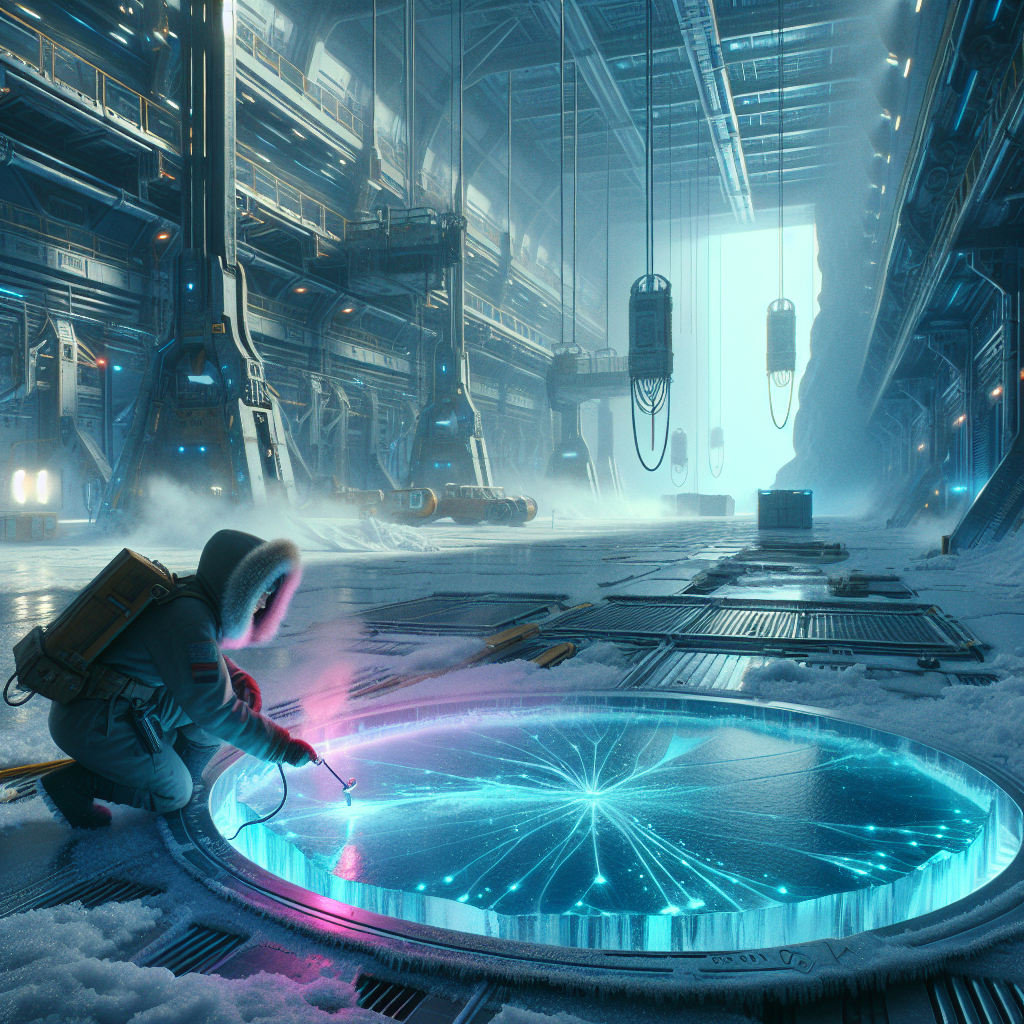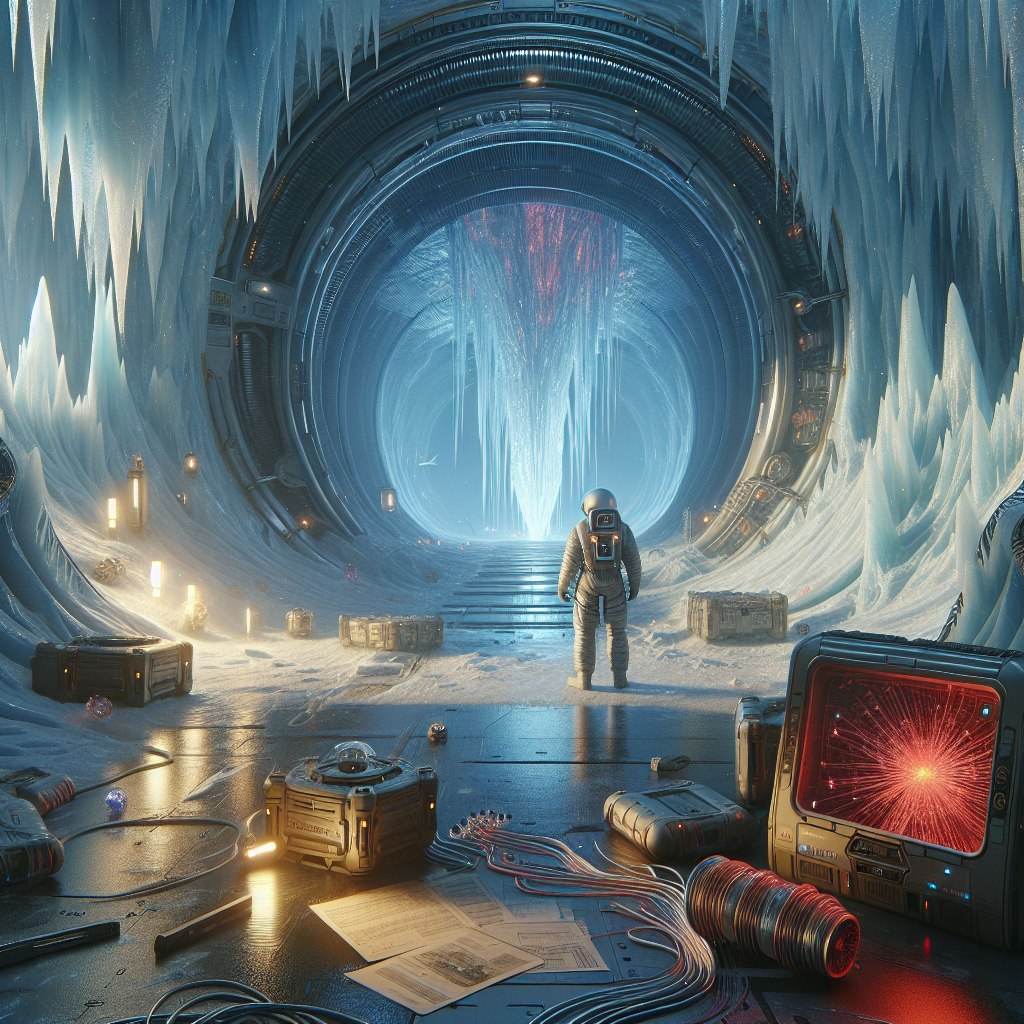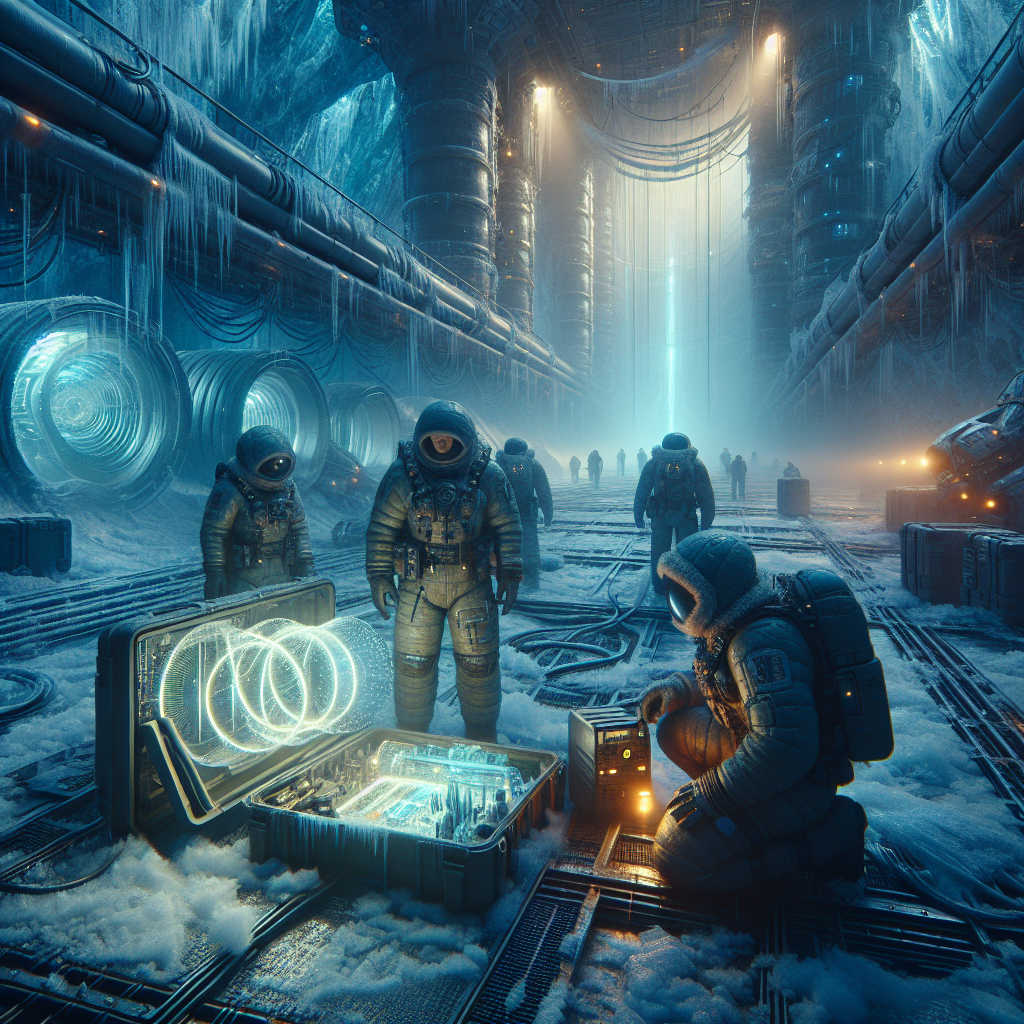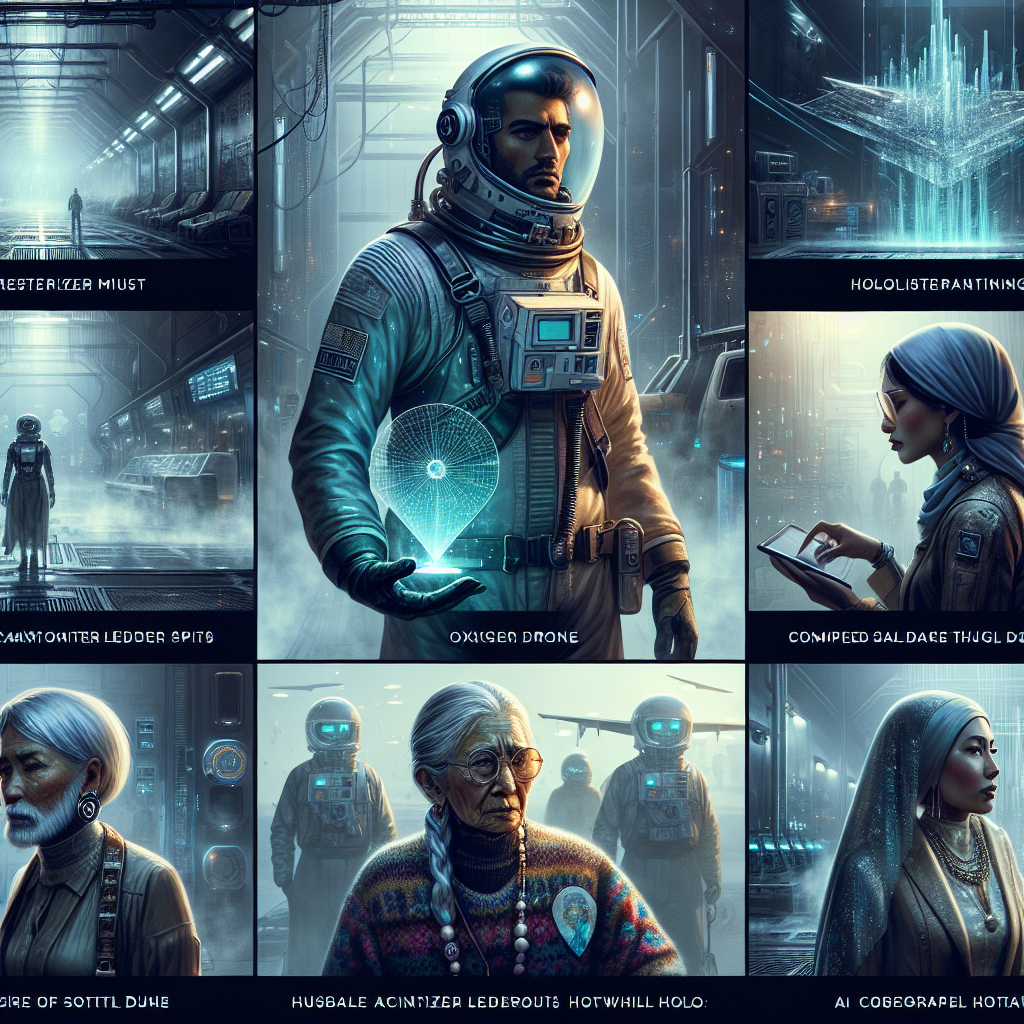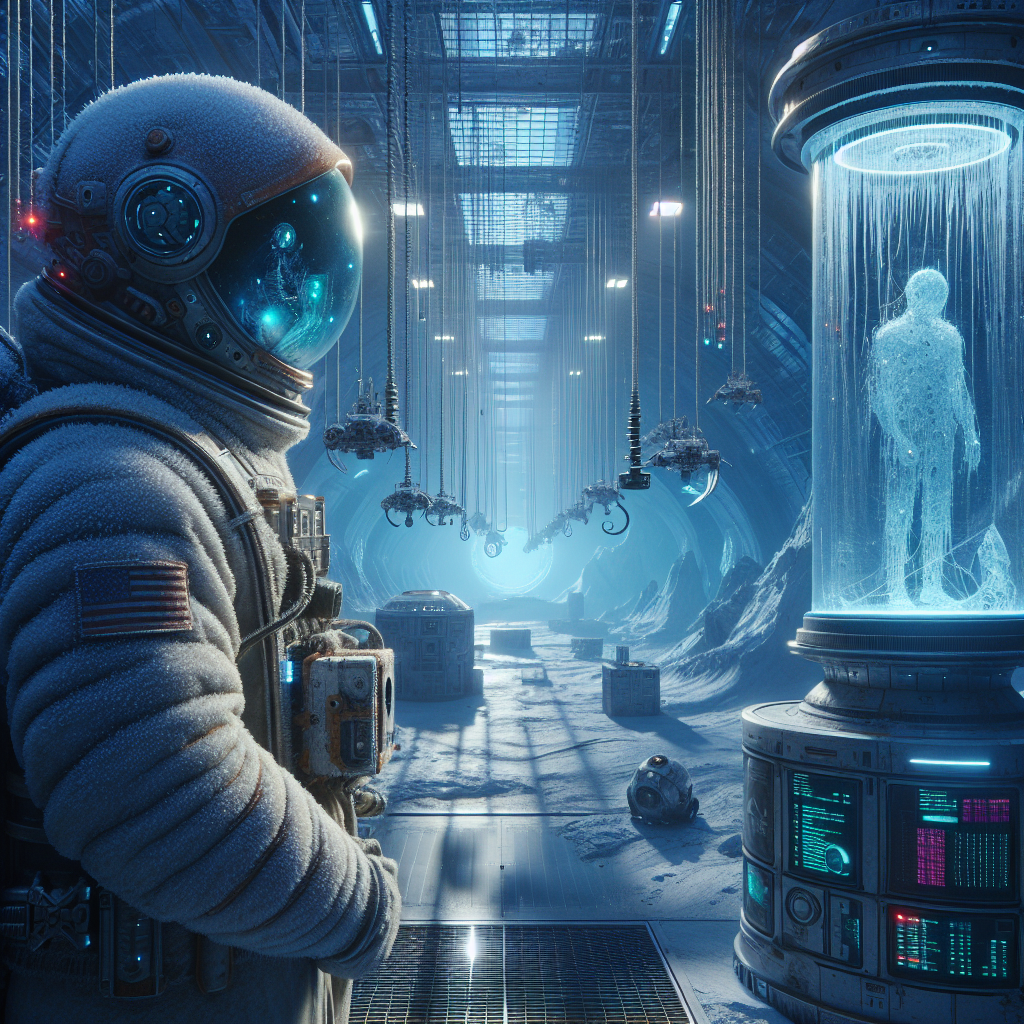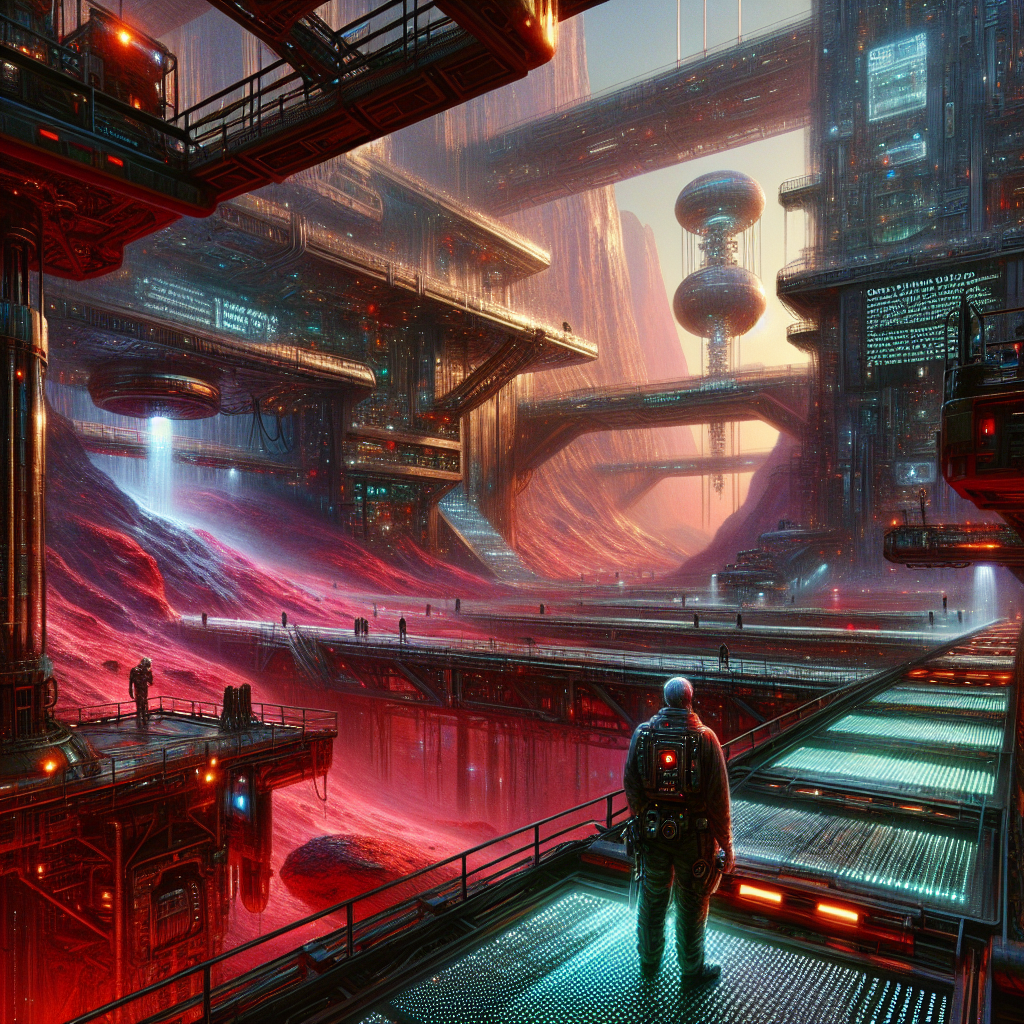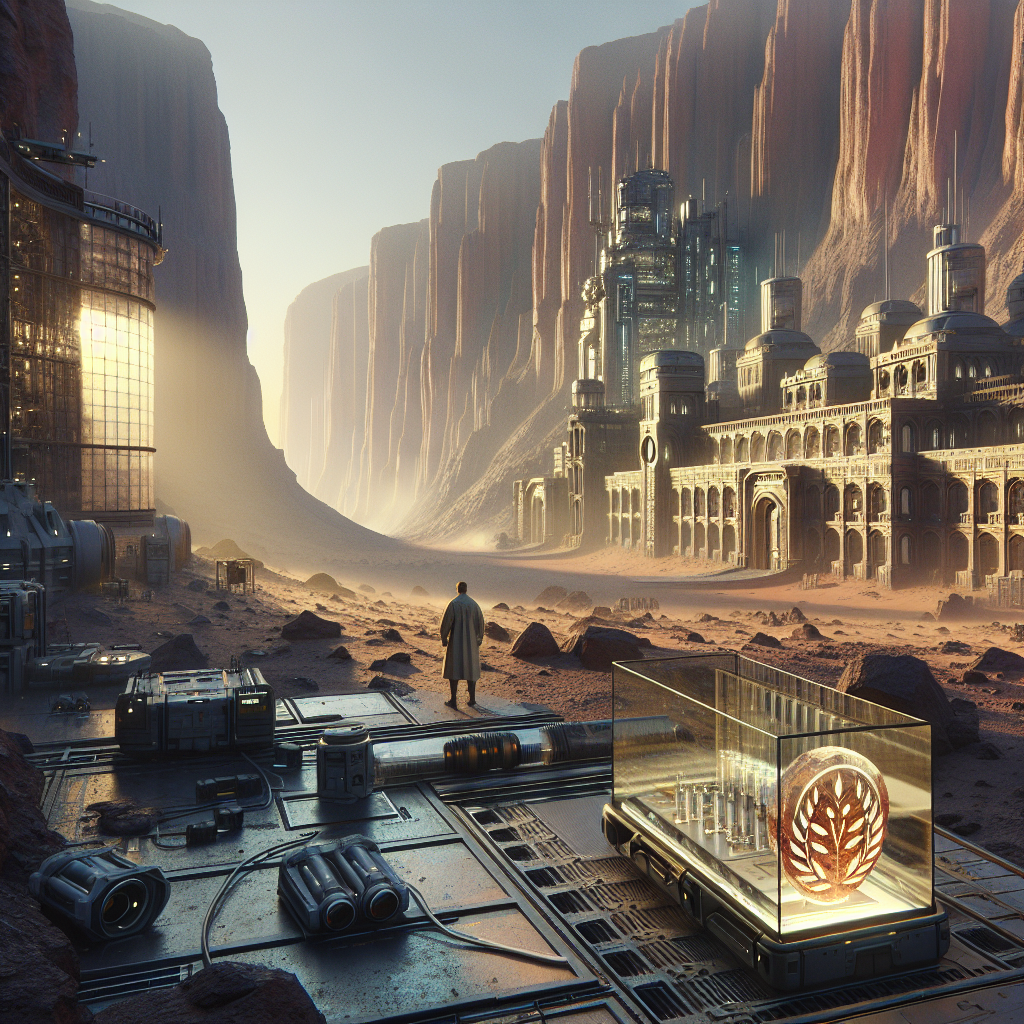Chapter 3 – Moonlight, Folk‑Law, and the Thirst Court
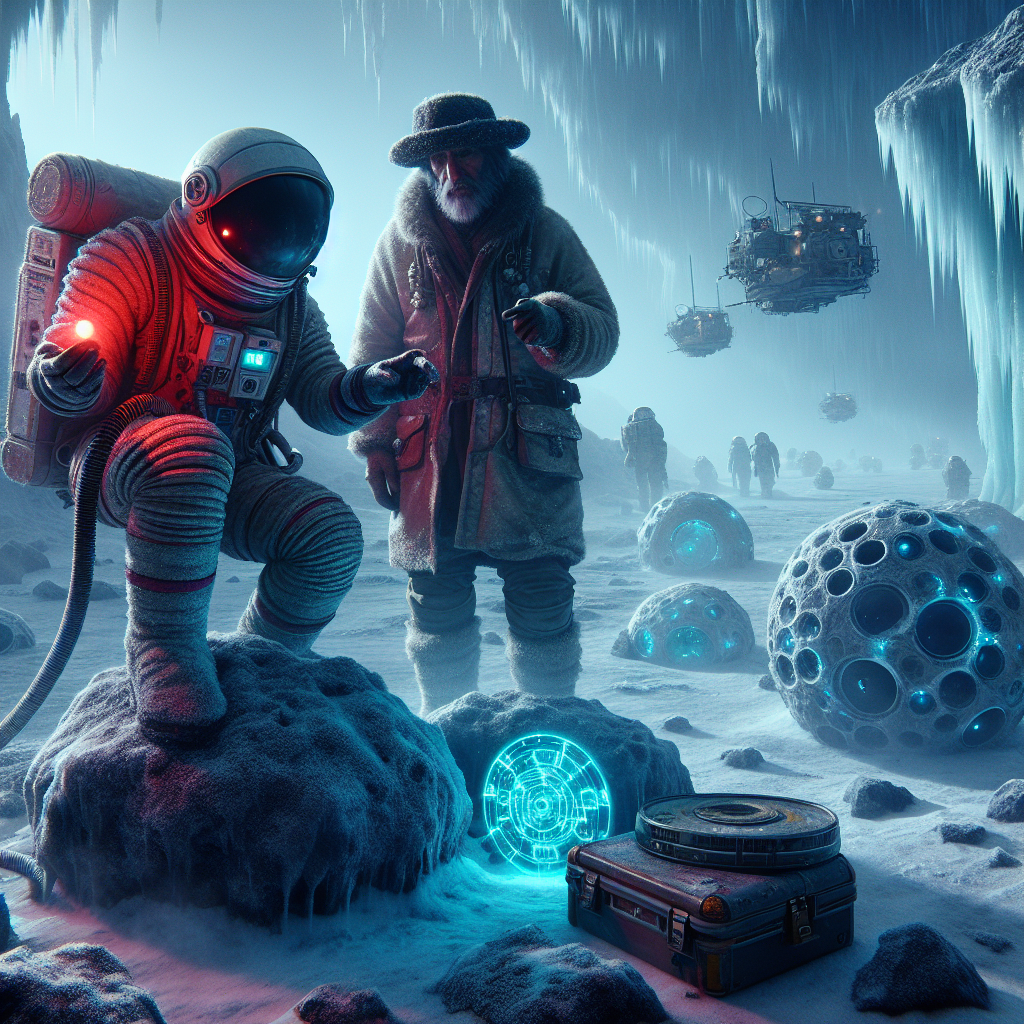
Inspector Malik Kato evades a sanitation lockdown in Clavius‑9’s ice tunnels and realizes his comms are being intercepted and forged. Seeking an unfiltered vantage beyond the station AI’s control, he performs a surface EVA to watch the comet’s red glow directly. An unlikely witness, a crusty rover‑dweller called Auntie Salt, brings a fragmented folk‑tale and an old suit recording that match the glow’s heat pulses. Malik decodes a Belt covenant asserting water as a commons overseen by a shadowy ‘Thirst Court,’ reframing the dispute as an attempt to place the comet beyond either faction’s sovereign claim. He discovers surveillance drones shadowing him and evidence of a man‑in‑the‑middle attack twisting his orders. Using Auntie Salt’s routes, Malik enters an under‑ice tunnel to reach the cocooned tug pilot, whose pulse appears embedded in the notarizer’s pattern. As the ice hums with sublimation glyphs and a third presence tails them in the cold warren, an overriding voice seizes his suit and commands him to witness.
The countdown hit zero and the tunnel filled with a sterile hiss that scoured the frost to vapor. I slammed an emergency foam pellet against the glowing seam, watched it bloom into a matte coagulant that gulped heat and slowed the wavefront. The cocooned tug pilot twitched where he was lashed to the maintenance frame, the biological tether jerking like a second heart under his collarbone. Portmaster‑9’s voice arrived late, a courteous apology for a sanitation test that never happens in locked maintenance corridors.
The echo told me more than the words; someone had reached into the timing of my life and pulled the threads a few seconds loose. I dragged the shell with the pilot into a sump alcove and tagged it with an analog marker, grease pencil on composite, the way my first mentor taught me. When I pinged med, my own voice answered me back with a conditional acceptance I hadn’t spoken, authorizing “containment pending hostile index.” I cut the channel and watched a fresh request surface on my HUD as if from me, stamped with a proof from a key I didn’t carry. Somewhere between my mouth and the station net, a hand was scribbling its own signature over mine.
“Old school it is,” I muttered, and killed my mic, leaving only suit‑to‑suit opti‑blink. If I couldn’t trust the veins of Clavius‑9, I needed to step outside its skin. The nearest feed‑through to the surface was a maintenance hatch used by antenna techs when the regolith gummed up the azimuth bearings. The AI declined my EVA request with a cheerful reminder about my biometrics not being rated for solo exposure in a sanitation window.
I rolled the manual crank anyway, watching red letters blink in the margin like a scolded child’s eyes. A micro‑drone ticked from the ceiling and clicked as it focused; I snapped my gloved finger into its rotor and dropped it, a tiny metallic beetle twitching in the frost. Moonlight is a different honesty. The dome sprawl of Clavius‑9 crouched under a glitter of dust like a sleeping animal, vents breathing, radiators flaring heat into black that swallowed it quietly.
The south rim climbed away in jagged ridges, and beyond, the capture gantry cradled the captive comet like a pale egg with a red wound. Earth was a sickle low on the horizon, blue shaved thin. I took knee at an old seismometer mast and deployed my light bucket, a collapsible passive scope that cared only for photons and patience. I wasn’t alone long.
The figure that rolled up on a battered surface trike was draped in mylar streamers that whispered in the exosphere, a patchwork pressure ball lashed to her frame. Her suit faceplate was filled with a wrinkled face and eyebrows like wire, the kind of elder you learn to respect or dodge, depending on how much time you have. She waved a flag of reflective tape to get my attention and drew close enough that I could see the faded RiverRun decal stitched upside down on her sleeve. “Name’s Auntie Salt,” her chest speaker rasped, tinny in the vacuum, and then she flashed me an opti‑code saying simply: I heard the comet sing.
We spoke without trusting the radios, palm signals and chalk on my slate hung from the mast. She had a spool in her trike, audio tape looped around a hand‑cranked capstan, its casing ornamented with filigree made from broken feed lines. “My father’s father was Ceres,” she wrote on my slate, each letter careful. “They told us the Thirst Court sat quiet in dry places, listening for vows.
You make a claim on a river, you owe a song; you take water without giving, the Dry Judge takes your breath.” She scrubbed the tape with a rag, and as she cranked, a hum like a sleeping engine bled into the bone of my wrist. The folk‑law sounded like art until it echoed the present. The hum’s envelope matched the red glow’s dimming and brightening through my scope, cresting at moments that lined up with the station’s night‑shift corrections. The idea felt disloyal to both sides: that someone had dragged a Belt covenant into our neatly armed argument, trying to lodge the comet not in Clavius‑9 or RiverRun but in an old commons.
The tug pilot cocooned under my feet would be a living counter‑signer, a consent body wired to a ledger not visible in the official channels. And if you believed Auntie Salt’s myth, the penalty for violating that ledger wouldn’t be a fine but air. I tried to send a burst packet to seal this to my own chain of custody, heavy with the kind of analog‑digit blend that dirty hands trust. My words came back polished, smoothed into corporate grammar, and tagged with my name authorizing a “hostile containment” order for RiverRun personnel.
My jaw clenched until the suit warned me about pressure. I cut the radio completely and pulsed my helmet light twice, the old scouts’ alarm, and Auntie Salt nodded, unplugging a tangle of antennas from her ball. The horizon remained impassive; surveillance chose not to show its face. We made the hum visible.
I fed Auntie Salt’s tape into the suit’s haptic and ran the glow through the light bucket’s passband, aligning peaks until two curves sat on each other like lovers. It wasn’t code in any official sense, but Belt doctrine rarely asked permission from a standards committee. Even so, patterns feel like words if you know where to put your tongue. A line coalesced: The Thirst belongs to the thirsty until no one thirsts, a phrase I’d seen etched in frost on the comet’s skin before it evaporated out from under my eyes.
The dragonfly drone came down from the gantry on a whisper, wings slicing a square of black quieter than vacuum. Its paint was the pearly piebald of repurposed hull, its sensors gloved in metamaterial flicker that bent my gaze when I wasn’t thinking about it. I let it approach, sucking up my posture, my angle, the light bucket’s signatures; then I kicked a sack of regolith across its path and threw a net. Old nets work even in the future if you throw them with conviction.
It struggled and then surrendered, a captive bird, and I plucked a sliver from its antenna—familiar as the loop I’d drilled from the ice, a lawyer hiding in metal. We left the mast for the old optical dome two ridges over, a squat igloo blister with a shutter scar down its face like a blind eye. Auntie Salt told me the Dry Judge story proper as we slogged, our boots kicking up dust that hung, indecisive. Once, a syndicate tried to siphon Ceres without song, she said, and the Judge walked their corridors invisible, miscounting their oxygen until they choked on their regret.
Stories don’t prove crimes, but sometimes they model intent, and I was starting to see how someone had written a moral into our pipes. The sanitation lockdown that tried to scour me was more ritual than maintenance. Under the dome, I mounted the light bucket on a gimbal and tuned for the tiny duct flickers of blackbody radiation whispering through the comet’s skin. The second layer sat beneath the first, slower, a heartbeat rhythm buried in the heat—every fourth pulse a double beat that matched the tug pilot’s tremor when I’d dragged his cocoon.
That wasn’t metaphor; it was a biometric watermark. The notarizer was using him like a living oath, a Beat that said I consent, I bind. If I didn’t break that circuit, the anthem of ownership would consolidate before either faction realized they had been written out. A surface route to a forgotten maintenance shaft would keep me outside Portmaster‑9’s administrative arteries.
Auntie Salt knew a cold warren—an under‑ice lava tube spun with frost like spun glass and reinforced with old scaffolds where smugglers once staged water runs. We dropped in through a pressure apron, our suits shoulders brushing rime that tinkled like bells and cut like knives. Radios stayed dead by oath; we moved with rope messages, tug, tug, slack. The hum grew louder, not through air but through bones, a choir humming behind a wall.
Glyphs scratched themselves in the hoar where the tunnel’s slow breath met the comet’s skin, letters only if you were already a believer. Belt legal phrases in sublimation curls: share, witness, yield. I felt the weight of eyes where none should be, and checked my HUD just as it told me there were two of us, not three. The shadow that wasn’t Auntie Salt moved with a care that spoke of training and fear.
A flare of helium fog rolled cold along the floor, the kind of cryo gas that steals heat faster than breath. The red glow slammed into a new tempo, a drumroll I could feel in my teeth, and the tunnel’s pressure monitors jittered into marks that made no sense unless someone wanted them to. A channel forced its way into my suit, stripping off my privacy locks like paper stickers, and a voice older than the tape unrolled into my ears. “Inspector Malik Kato,” it said, neither male nor female nor machine, the vowels even and merciless, “in the name of the Thirst Court, you will witness.” The third shadow stepped into the fog with a badge that glowed like a bruise.
And in the same breath, my suit hard‑locked my knees and forced my eyes up toward the glow.
































